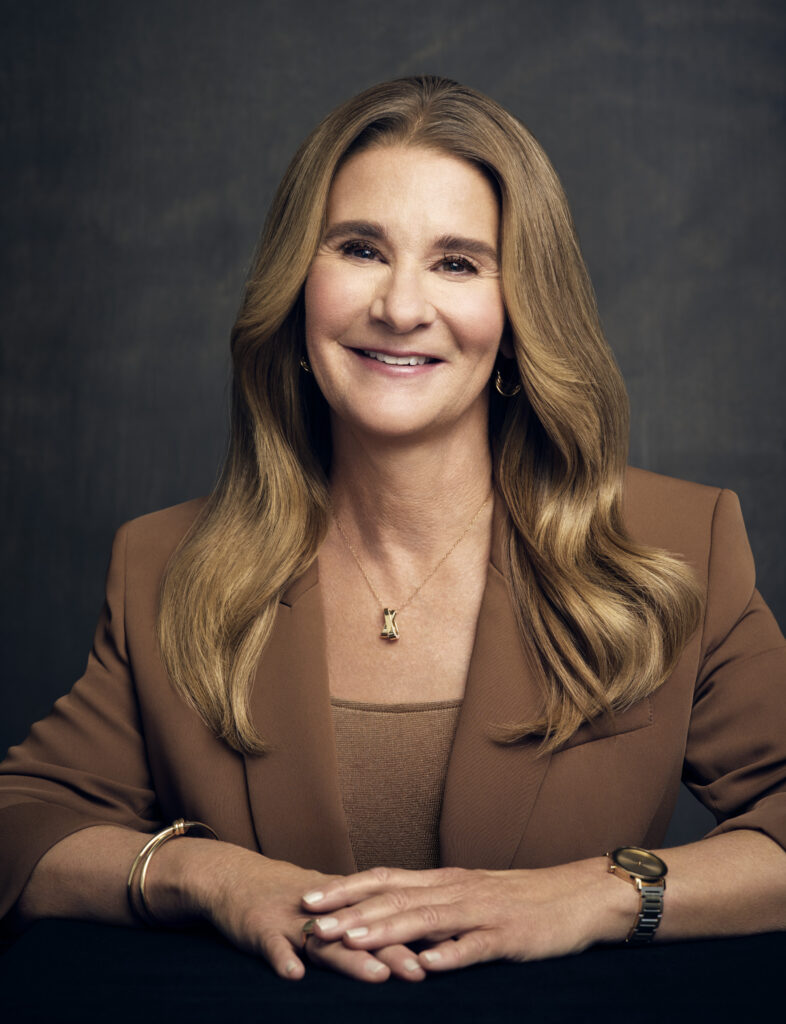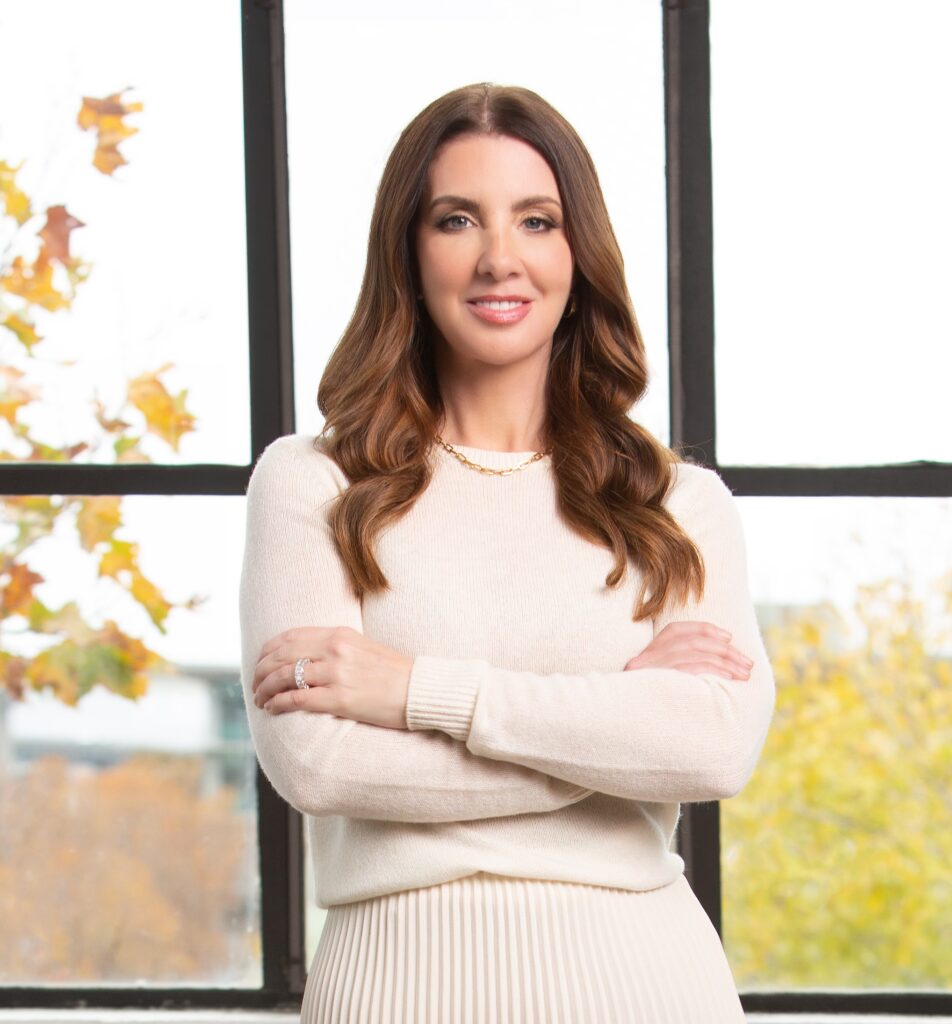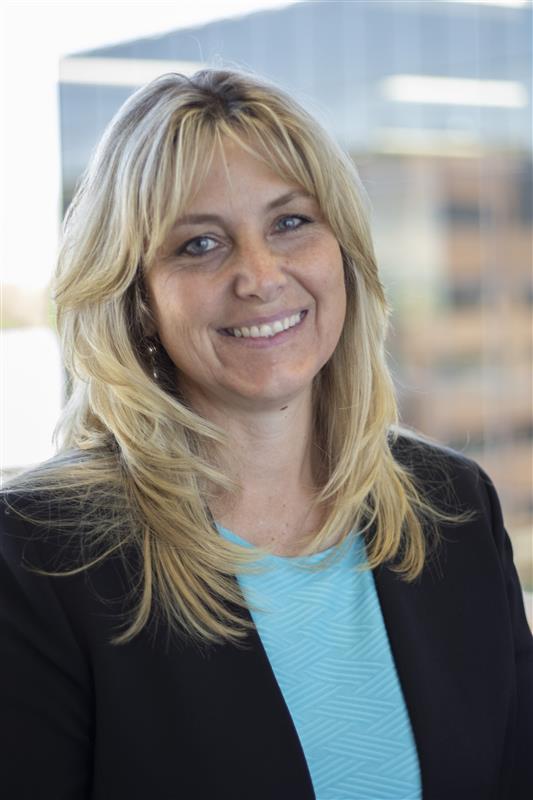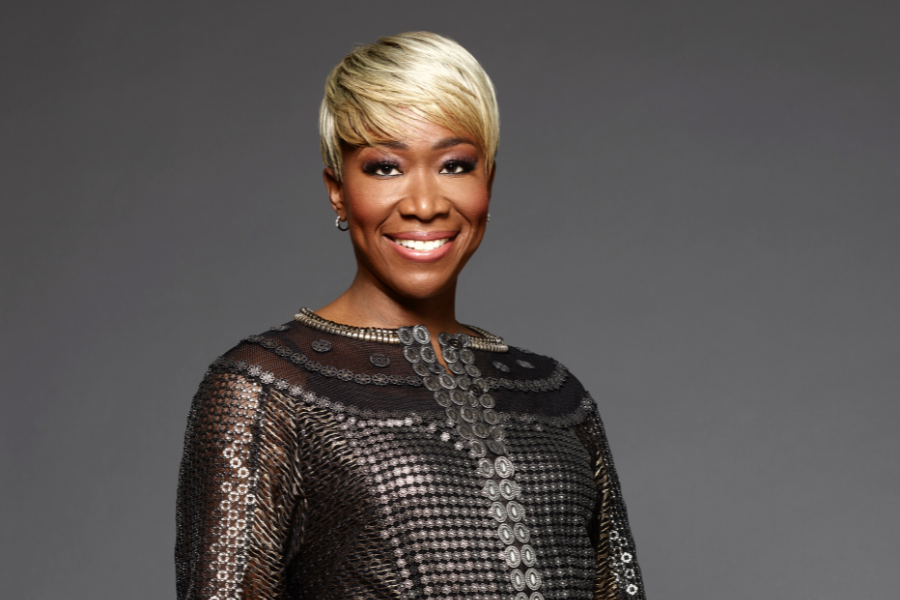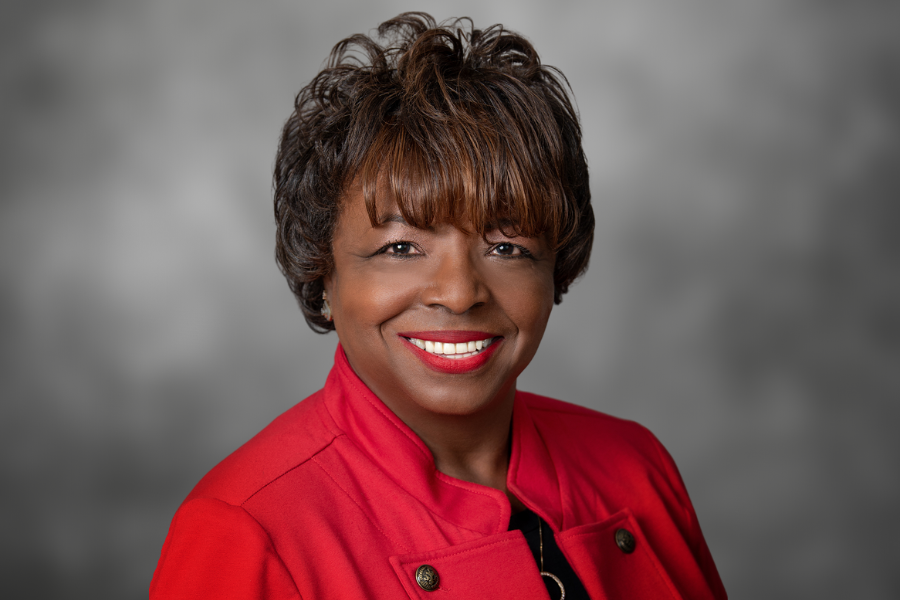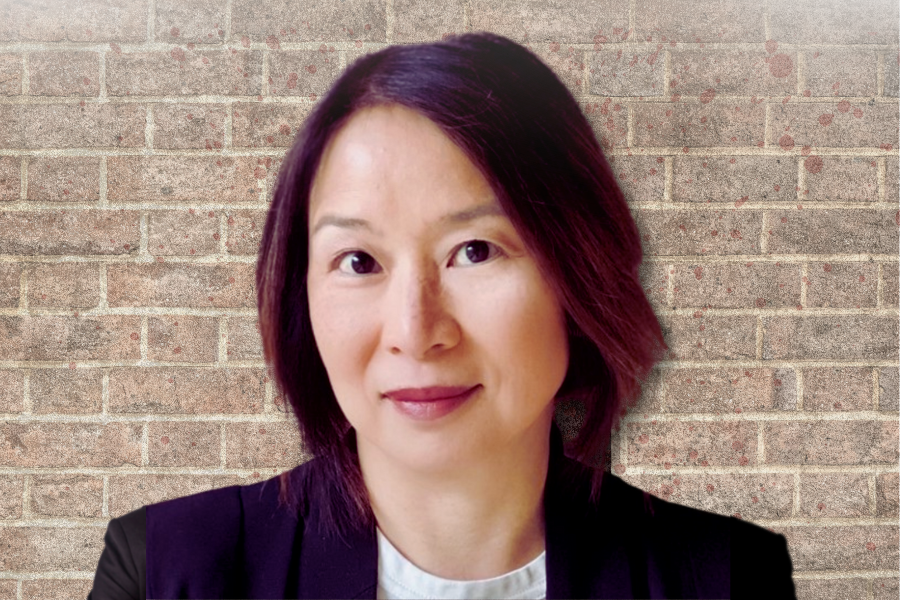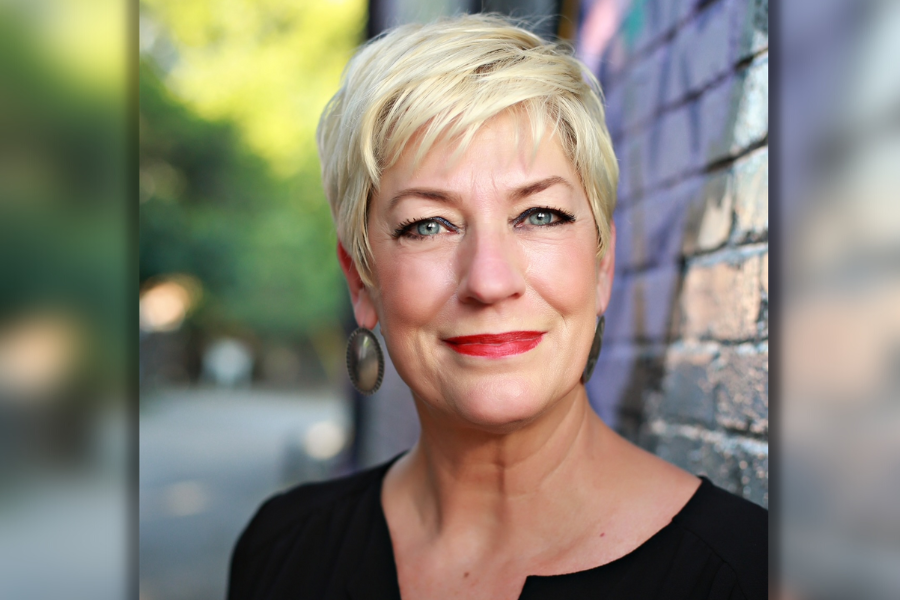
MAKING SENSE OF THE 2024 ELECTION: With Pantsuit Politics’ Sarah Stewart Holland and Beth Silvers
“Good governance needs people advocating for really different approaches to legislation, to policy, to issues, to messaging.” – Beth Silvers
Episode 03
It’s election season, and it’s been an interesting ride to this cycle’s moment of truth! Jen and Amy dive deep into the heart of the upcoming 2024 election with the insightful women from Pantsuit Politics–Sarah Stewart Holland and Beth Silvers. The conversation centers around the distinct dynamics shaping this election, along with insight as to why it’s vastly different from 2016; sparking a thought-provoking dialogue about the evolving political landscape.
With Vice President Kamala Harris potentially on the brink of breaking barriers as our first female president, the discussion also touches on the hopes and challenges ahead. Sarah and Beth were participants at the Democratic National Convention in August, and they share what that experience was like, and how it informed their views of the current political terrain. As we look to a potentially historic outcome, Beth and Sarah share practical ways we can engage in the process and build community as we navigate this pivotal moment together.
You also won’t want to miss a new GenXcellence segment where Jen and Amy reminisce about their first voting experiences.
Jen: Everybody, welcome to the show. Welcome to the For the Love podcast. Amy and I are delighted to see you. Hi. How are you?
Amy: I’m well. How are you?
Jen: Well, I don’t know if you know this, but we have an election this year. Have you heard?
Amy: I have, a little bit.
Jen: Stuff’s going on. Things are happening. Words are said. There’s a bunch in the zeitgeist, and it’s just all-encompassing. It’s just everywhere. It matters. It’s important. It’s. It can be overwhelming. It can feel daunting and in some cases, even paralyzing. And so our guests this week, as you know, are going to help us. Process and synthesize and try to make sense of all that’s happening. But before we talk to them, they are fan favorites on this show. Certainly fan favorites of mine. I want to ask you first. What is your input channel for taking in the news? I don’t necessarily mean which exact channel on the television set, but what’s your intake valve? How do you do it? What are your filters? How much do you take in all of it?
Amy: I’ve dialed it in pretty well. Mostly reading.
Jen: Oh,
Amy: no 24-hour news.
Jen: Okay, so when you say reading, like articles, New York Times, The Atlantic, whatever.
Amy: Pick and choose and NPR.
Jen: Yeah.
Amy: I will watch a cable news 11:00 show. Like, just for the daily news. But gone are the days of having the TV on during the day. It’s too much.
Jen: It is.
Amy: And I do dabble in Twitter, but only read independent journalists. And one constitutional law guy. So if I have a question about something, I know where to go. They link source documents, they explain things. But I don’t get in the weeds. On that platform at all.
Jen: Kudos to you for finding a way to not get in the weeds on Twitter. I quit Twitter probably 3 or 4 years ago because I just realized this is creating a low hum of crazy in my brain.
Amy: It’s absolute garbage but it’s a good resource. I treat it like Wikipedia or whatever. You go and you find the links to the good stuff and, you know, it’s been vetted if you follow carefully. So that’s all I use it for, no comment sections.
Jen: Right. See, that’s just it. I didn’t use it judiciously. I just used it as it came to me.
Amy: I live-tweeted the Bachelor.
Jen: Well, yeah. Like that’s when it was fun, back in the olden days.
Amy: No, that’s how I use it, but I do, I do read some every day. Look at NPR. That’s about it.
Jen: I actually learned, what our guests, which we will introduce to you guys in just a minute, taught me–I think either the last time or the first time they were on this show–to be incredibly cautious and even wary of any cable news programs.
And so I just remember thinking that was very wise advice. Because I have my preferred network, which is the one that agrees with me. That’s the one I like. And so anyway, I have found that I have to also steward my intake because I find myself so worked up and so worried and so anxious and then so furious and that level of intensity has this corrosive effect on me, which at that point I start to go silent. Like I just go, I can’t handle this, I can’t manage this. I can’t talk to you. And so I have to also steward my intake. But that is hard. That is not the way our world is set up right now.
Amy: No, not at all. But I think you’re not alone. I think all of us, it’s a natural instinct to become more siloed and more silent because.
Jen: Yeah,
Amy: I think at this point we’re all avoiding conflict.
Jen: Yes, exactly.
Amy: Maintaining our lives.
Jen: And our relationships.
Amy: Right.
Jen: It has gotten that bad.
Amy: As our guests will say later on, it’s exciting to be involved in this. Democracy is actually amazing. Don’t run yourself ragged just on your daily news.
Jen: I did like hearing that.
Jen: Anyways, speaking of…beefore we onboard our guests here, let’s head into one of our segments that we love called Culture Shock.
Jen: All right. This is just us discussing something and culture. It could be something important. It could be something like Bachelor in Paradise. Today it’s important. So the DNC, let’s talk about the DNC. We’re going to talk about this kind of at length with our guests today. I would like to know, what was the highlight for you?
Amy: Mrs. Obama,
Jen: God.
Amy: and her husband. She was incredible. We watched it live–like the final speeches live every night. And then I go back the next day and rewatch things. And my friend said, you have to go watch the roll call. And so I did, and that was amazing.
Jen: Yes. Right. Like, you know, I like ceremony. And so that feels..
Amy: That was ceremony like I’ve never seen before.
Jen: Yeah.
Amy: Though I have not paid attention to any roll call at any convention in my whole life. And that felt.
Jen: Unifying.
Amy: Unifying and hopeful. And everybody was represented amazingly.
Jen: Yeah. It’s so true. That doesn’t get a lot of press, but that’s the kind of stuff that gives me like a lump in my throat for some reason. I’m very drawn to Pomp and Circumstance. Why? I don’t know, but I certainly am. I would say for me, I loved Kamala’s acceptance speech, too. I cried a little. But I think for me. I was really moved by Tim Walz. I didn’t know him before this. I didn’t know him before she selected him as her running mate. But something about him. I had like reached an interior place for me that has gone so dark, so cynical about politics, about politicians, about goodness, about. You know, they all say they’re ordinary and none of them are. These are not ordinary people.
Amy: Not a single one.
Jen: But this guy. Pretty ordinary. Like something about his Midwestern coach. Teacher. Oh, God, I was, I don’t know what I was looking at something on Instagram yesterday and I forgot he was on some podcast interview just with a regular person. And he was like, they were talking about homeownership. And he said something like, “For me, the most neglected part of homeownership is gutters. And I take this personally” and I’m like, I want this. I’m interested in why you take gutter neglect personally.
Amy: Like he reminds me of the insurance commercials where it’s like, don’t turn into your parents.
Jen: Yes.
Amy: But he’s like the version we want.
Jen: But the good version, right? Like, he’s wholesome. He’s got a wholesomeness to him, to say nothing of his very impressive record. His policies, his leadership has just–I’m so in alignment with it. I just am so drawn to him and his kid. Oh, my God, I can’t deal with that. I mean. I think everything’s just been so mean and ugly and gross for a decade that just seeing something so pure, almost embarrassing in its bald candor was just like, I don’t know–it was Walz Family for the win for me.
Amy: Yes, agree.
Jen: Okay. We’re going to talk about the DNC more. So stay tuned because our guests have thoughts because they were there the whole time. Okay.
Amy: First, yeah. Let’s move into gen excellence.
Jen: Okay. In keeping with the theme, what’s one of your first memories about politics, or political culture that you remember?
Jen: I hope I’m not taking your answer because you mentioned this to me earlier, but. Okay, first of all, I was a late adopter to being, having any sort of civic responsibility. This is very embarrassing, you guys. I’m so embarrassed to tell you this. I don’t know if I’ve ever admitted this, actually. I did not vote in the first two presidential elections that I could have. Oh, I know, I. I just did not have any. It wasn’t like my campus climate in college, at all. And I wasn’t surrounded by, like, civic-minded kids or even adults. At that time, we were in a different lane. I honestly almost have no memory of it. I almost have no memory of elections or, like, these big conversations that were certainly happening, like in the early 90s.
Amy: Oh my gosh.
Jen: Right. I mean, so much was going on globally and certainly nationally. Anyway, that’s so embarrassing. And so I want you to know that I was definitely like a late, decent citizen. I was in my 20s before I voted for a president. And so my first actual memory of anything that was truly political, although I would not have known to uplink it to a political chamber at the time, was my just fear of the Cold War. I remember being in fourth grade at Mulberry Elementary School, and, I don’t think this is regional. You’ll have to confirm this, but we’d have to go out into the hallway and have nuclear bomb drills. From what I can remember, I think we were backs against the wall, head between the knees. I think if I remember right, we held a textbook over our heads. I guess how was that going to help us from the nuclear blast? I don’t know that we were safe, to be honest. I didn’t really fully even understand what any of that meant. I just knew it was scary and it scared me. I knew it had something to do with Russia, which was just some big, unnamed, confusing enemy. And I was pretty sure that we were going to be bombed. My town of Homa, Louisiana. I was just pretty sure that for some reason, nuclear war was inevitable in South Louisiana.
Amy: Well, I believe that because we were explicitly told that.
Jen: Okay.
Amy: In San Antonio, we had so many Air Force bases. So we were always told, I don’t know if it’s lore or truth, that we were number two on the hit list.
Jen: That is.
Amy: True. DC first, then San Antonio to take out the Air Force. We also just hid under our desks with a textbook.
Jen: So you were as safe as I was.
Amy: Like not understanding it obviously at a young age, but also having the wherewithal to think how’s my desk going to protect me.
Amy: Right?
Jen: Is that your first memory?
Amy: No, not at all, I guess. I mean, that was all through elementary school. We didn’t do that in middle.
Amy: My first real memory is going to vote with my mom, and it must have been in the Carter Ford election 76. But I remember going into the booth and her pulling the curtain and her saying, you don’t ever have to tell anyone who you vote for that is private. And it’s a rude ask.
Jen: Oh, yeah. Yeah, yeah.
Amy: And I’m not telling you.
Jen: Oh. And I was like, oh, okay.
Amy: Which, considering her political landscape now and social media and it’s not at all a private thing, but it still can be.
Jen: It can be.
Amy: Once you go into your little booth. Yeah. We don’t have curtains anymore. I wish we did. But still. Yeah, that’s my first.
Jen: That’s a good memory.
Amy: Walking past all the signs standing in line and then going in the little booth.
Jen: That’s such a good memory.
Amy: Then the result of that election was there was an Amy in the White House.
Jen: Good time.
Amy: Yes. There’s 80 million of us.
Amy: For sure. Yeah, but just having an Amy in the White House felt special.
Jen: Nice. God, how have we never had a Jennifer at the White House? I don’t do statistical analysis. How did one of them not name their daughters? Jennifer? Everyone else did. You know they named them Jennifer and Amy? We were the number one and number two names of our generation. Now, I didn’t even know that I felt jealous of your representation at the highest levels of government. Congrats.
Okay. Those are. Those are good. Those are good. I don’t know if I’ve ever voted without being choked up. And I’m choked up now just thinking about it, like being in line and seeing everybody, I don’t know, everybody’s voting. It’s not even that. It’s that we’re all here. We get to do this. We get to participate. Our vote matters theoretically, and I don’t know–something about it. Again, it’s ceremonial, sort of.
Amy: I get anxious standing in line.
Jen: I really feel the weight of it.
Amy: The weight of it, the gravitas, the importance. Like as cynical as I can get about things, when I’m standing in line to vote, I’m nervous. I take it seriously. When it’s over, I’m like, okay, I’ve done my part. That was my part.
Jen: Gosh, that’s so true. So, so on that note. Let’s bring our guests in today because, well, first of all, these ladies are no strangers to this show. I believe this is their third appearance here and I have been on theirs and we have become friends through all of these conversations that we’ve had together. And so we just, in this world, keep them on speed dial when we need to process an election season or some really thorny politics, or we have to figure out dialog between different ideologies, right? Which is, I guess, always new.
So their perspectives as women, smart women at that, very smart women, wives and moms, highly engaged citizens, both of them are relatable and important, certainly to me and to this community and to Amy. And so, truly, their origin story was actually seeing the political landscape from two different camps. And they’ll discuss that, right when at the, at the top of the interview. But so we’re talking today again, delightfully to Sarah Stuart Holland and Beth Silvers. These are our friends from, you know, them, from Pantsuit Politics. What a community they have built. Like, I love their work in the world.
So if you’re not familiar with the Pantsuit Politics podcast, it’s been featured in the New York Times, The Atlantic, named by Apple podcast as one of the best shows of 2021. Sarah and Beth speak all over the place to businesses, universities, and civic organizations about essentially improving political dialog. They’ve come by their knowledge honestly, both by credentials and experience. They’ve worked behind the curtain. Sarah started her career as a congressional staffer and a campaign aide and then moved into being a a blogger and social media consultant. Sarah has a law degree. She’s practiced law and she served as a human resources exec and business coach. So they’re wise. They’re measured. I trust them, and these are the exact sort of leaders that I’m interested in bringing to our podcast community; where we can continue to build sort of a safe place for conversation and dialog and processing. So we’re delighted to bring back to the show today, Sarah and Beth.



